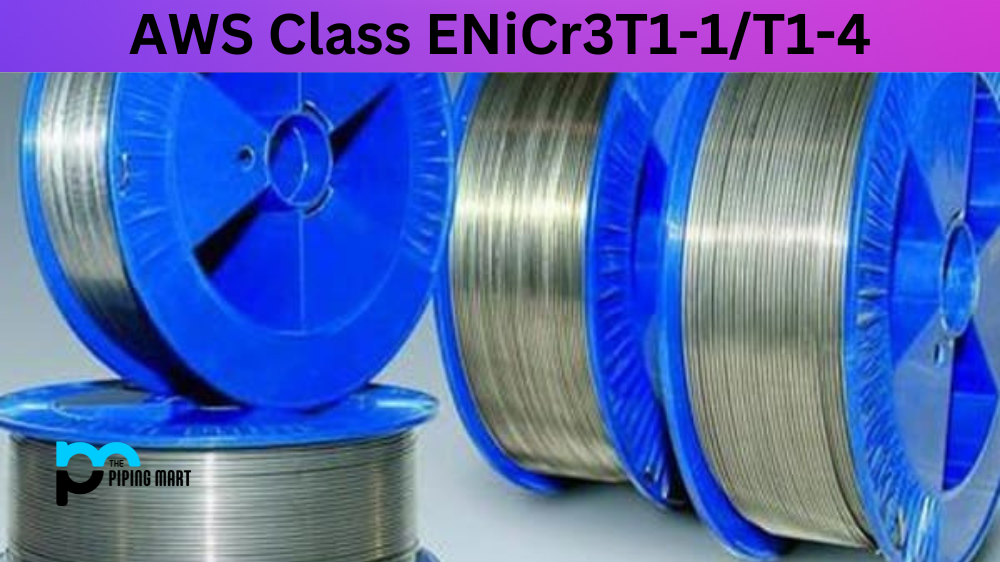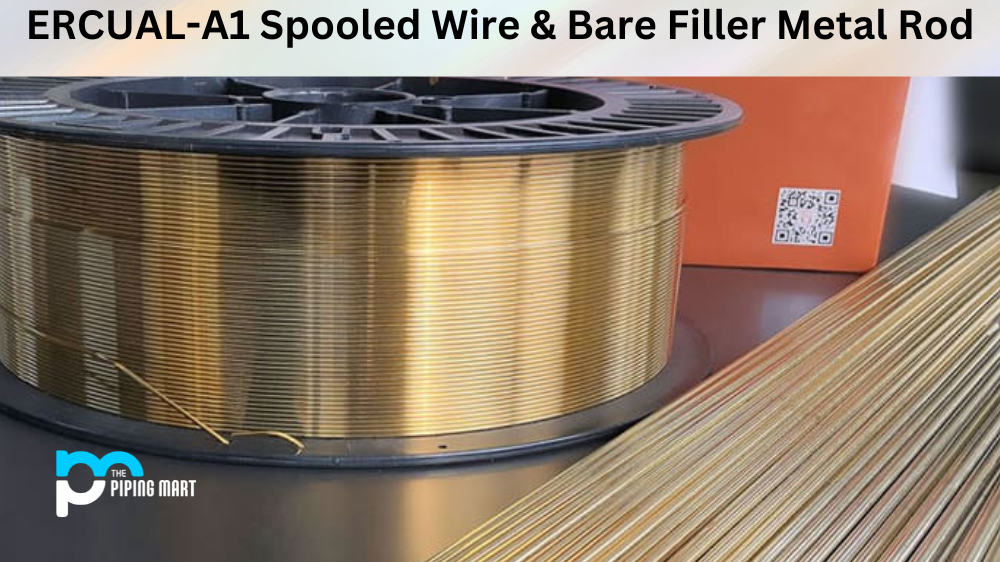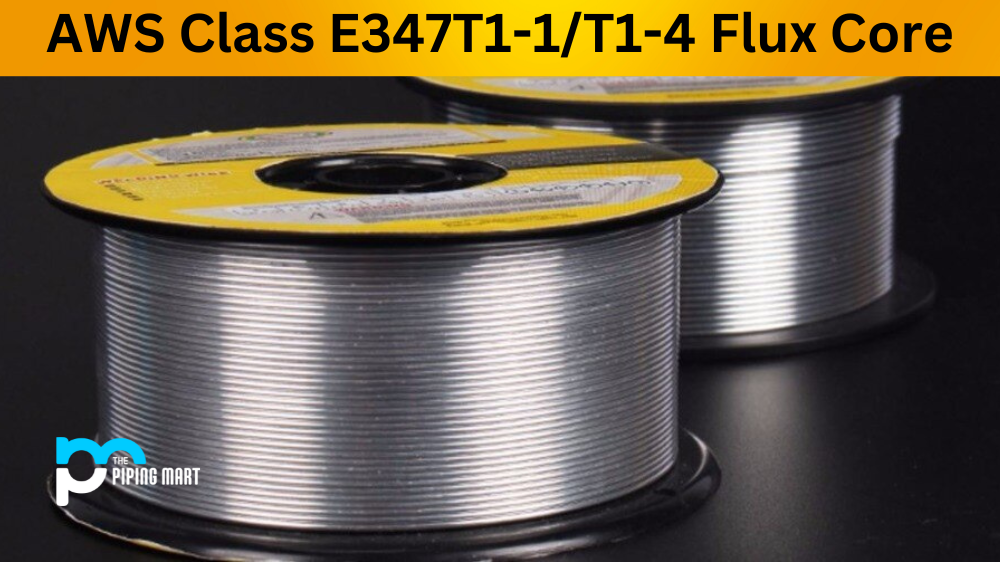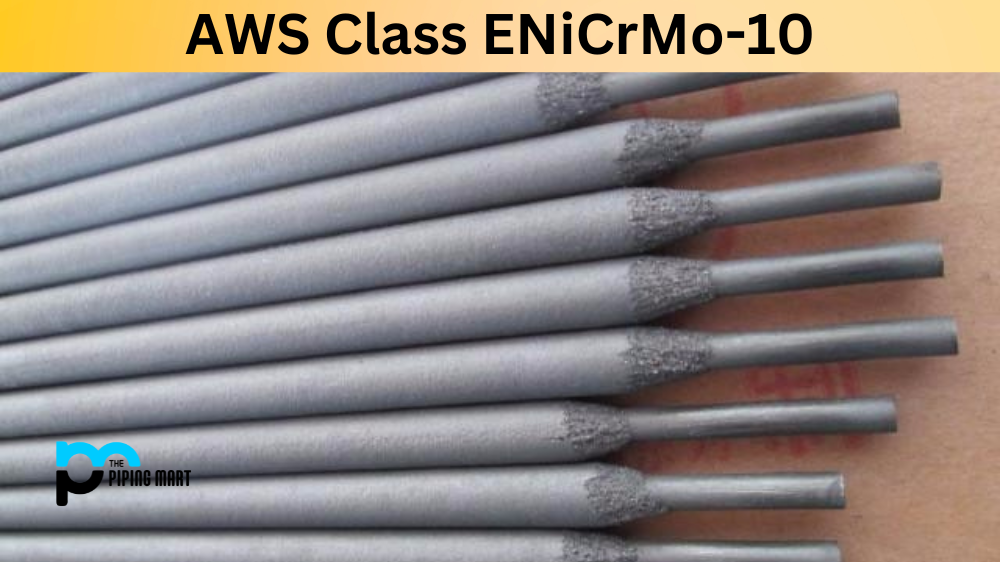The AWS Class ENiCr3T1-1/T1-4 is a versatile alloy that finds its application in several industries, such as petrochemical, power generation, and aerospace. It is a nickel-chromium alloy with high resistance to corrosion and high-temperature oxidation, making it an ideal choice for applications that involve harsh environments. This blog post will discuss the composition, physical and mechanical properties, uses, heat treatment, and corrosion resistance of AWS Class ENiCr3T1-1/T1-4.
What is AWS Class ENiCr3T1-1/T1-4?
AWS Class ENiCr3T1-1/T1-4 welding alloy electrodes, sometimes called “nickel alloys” or nickel-chromium alloy welding rods, are designed for manual and mechanized welding processes. They possess superior tensile strength while maintaining excellent arc stability, and they resist corrosion in various environments. The particular elements making up their composition – Niobium (Nb), Titanium (Ti), Chromium (Cr) and Iron (Fe) – give them the ability to provide high hardness even at elevated temperatures. The combination of properties makes these coated electrodes ideal for applications such as steam turbine blades and other fastener components where thin sections must be joined without cracks or distortion.
ENiCr3T1-1/T1-4 Welding Electrodes Composition
The AWS Class ENiCr3T1-1/T1-4 flux core wire is a nickel-chromium alloy containing molybdenum, tungsten, and titanium. It also has a small percentage of carbon, silicon, manganese, phosphorus, sulfur, and iron. Adding molybdenum and tungsten makes this alloy highly resistant to localized corrosion, while titanium enhances its high-temperature oxidation resistance.
| C | Mn | Si | Cr | Fe | Cb + Ta | S | P | Ni |
| 0.04 | 3.0 | 0.04 | 18.2 | 1.5 | 2.7 | 0.003 | 0.010 | BAL. |
ENiCr3T1-1/T1-4 Coated Electrodes Physical Properties
The AWS Class ENiCr3T1-1/T1-4 has a melting point of 1350-1400℃ and a density of 8.2 g/cm³. It exhibits excellent thermal and electrical conductivity, making it an ideal choice for applications requiring good heat transfer and electrical resistance. It also has a low coefficient of thermal expansion, making it relatively stable at high temperatures.
ENiCr3T1-1/T1-4 Welding Electrodes Mechanical Properties
The AWS Class ENiCr3T1-1/T1-4 welding filler wire electrode has good strength and flexibility at room temperature. Its tensile strength ranges from 550-700 MPa, while its yield strength ranges from 260-380 MPa. It also has good fatigue resistance and fracture toughness, making it a suitable choice for critical applications where reliability is essential.
| Tensile Strength | 89,000 psi |
|---|---|
| Yield Strength | 68,000 psi |
| Elongation (%) | 26% |
ENiCr3T1-1/T1-4 Welding Electrodes Trade Names
| Class | UNS | Oxford Alloys |
| ENiCr3T1-1/T1-4 | W86082 | Alloy 82T-1 |
ENiCr3T1-1/T1-4 Coated Electrodes Parameters
| SIZE | VOLTS | AMPS | STICK OUT | SHIELDING GAS |
| .045” | 25-28 | 140-200 | ½” | 75 Ar/25 CO2 or 100% CO2 |
| 1/16” | 26-28 | 190-230 | ½” | 75 Ar/25 CO2 or 100% CO2 |
ENiCr3T1-1/T1-4 Welding Electrodes Uses
The AWS Class ENiCr3T1-1/T1-4 flux core wire is applied in several industries, such as petrochemical, power generation, aerospace, and marine. It is commonly used to manufacture gas turbine components, heat exchangers, and chemical processing equipment. It also welds dissimilar filler metals such as nickel alloys, stainless steel, and carbon steel.
ENiCr3T1-1/T1-4 Coated Electrodes Heat Treatment
The AWS Class ENiCr3T1-1/T1-4 is a non-heat treatable alloy requiring no special heat treatment to achieve its desired properties. However, it is essential to avoid prolonged exposure to high temperatures above 760℃ to prevent the precipitation of harmful intermetallic phases.
ENiCr3T1-1/T1-4 Welding Electrodes Corrosion Resistant
The AWS Class ENiCr3T1-1/T1-4 exhibits excellent resistance to corrosion and high-temperature oxidation. It has a high resistance to pitting, crevice, and stress corrosion cracking, making it an ideal choice for applications that involve exposure to harsh environments such as seawater, acids, and alkalis.
Conclusion
The AWS Class ENiCr3T1-1/T1-4 is a versatile alloy that exhibits excellent resistance to corrosion and high-temperature oxidation. It finds its application in several industries, such as petrochemical, power generation, aerospace, and marine, where its unique properties are highly valued. Understanding its composition, physical and mechanical properties, uses, heat treatment, and corrosion resistance is essential for anyone who intends to use this alloy in their applications.

A passionate metal industry expert and blogger. With over 5 years of experience in the field, Palak brings a wealth of knowledge and insight to her writing. Whether discussing the latest trends in the metal industry or sharing tips, she is dedicated to helping others succeed in the metal industry.




